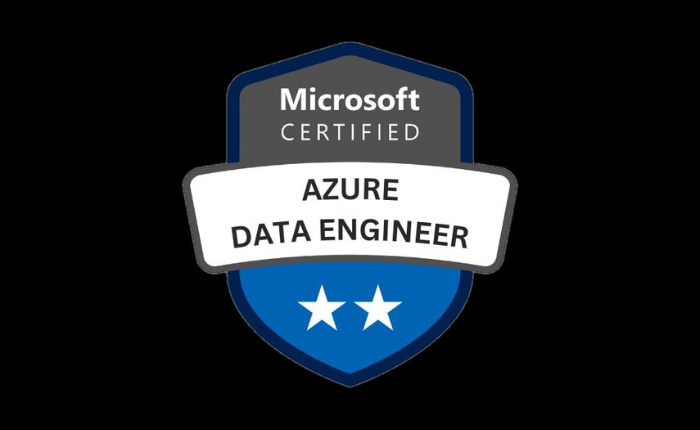In today’s fast-paced digital world, data is the new currency. Businesses generate massive amounts of information every second, and turning that raw data into actionable insights has become a top priority for organizations looking to stay competitive. Azure Data Engineering plays a critical role in this transformation, helping companies efficiently collect, store, and analyze data at scale.
Whether you’re building an online platform, managing complex databases, or working in e-commerce, Azure Data Engineering can help turn your data into a strategic asset. Let’s dive into the fundamentals of Azure Data Engineering, its key components, and why it’s a game-changer for businesses.
What is Azure Data Engineering?
Azure Data Engineering refers to the practice of using Microsoft Azure’s cloud platform to design, build, and manage scalable data systems. It involves creating robust architectures to extract, transform, and load (ETL) data, manage big data solutions, and integrate machine learning and AI into data workflows.
Azure offers a rich ecosystem of services designed specifically for data engineering, enabling developers and data professionals to build secure and efficient data pipelines. With Azure, you can collect data from various sources, store it securely in the cloud, and analyze it using powerful tools like Azure Synapse Analytics, Azure Databricks, and Power BI.
Key Components of Azure Data Engineering
Here are some of the essential components that make Azure a leading platform for data engineering:
1. Azure Data Factory (ADF)
Azure Data Factory is a fully managed, serverless ETL (Extract, Transform, Load) service that allows you to automate data pipelines. You can easily orchestrate data workflows, moving data from various sources like on-premises databases, cloud platforms, or IoT devices into Azure’s data storage services like Blob Storage or SQL Database.
Key benefits include:
- Easy integration with both Azure and non-Azure data sources.
- Drag-and-drop user interface for building pipelines.
- Built-in data transformation capabilities.
2. Azure Synapse Analytics
Formerly known as Azure SQL Data Warehouse, Azure Synapse Analytics is a limitless analytics service that brings together big data and data warehousing. You can query data at scale, whether it’s in data lakes or relational databases, and perform real-time analytics using Spark or SQL.
3. Azure Databricks
Azure Databricks is a fast, easy, and collaborative Apache Spark-based analytics platform. It’s ideal for processing big data and running machine learning models. Azure Databricks integrates seamlessly with other Azure services, making it a perfect tool for building end-to-end data solutions.
4. Azure Stream Analytics
For real-time data processing, Azure Stream Analytics allows businesses to capture and analyze data as it’s generated. It’s a fully managed service that can ingest data from multiple sources, including IoT devices, and deliver actionable insights in real time.
5. Azure Data Lake Storage
Azure Data Lake Storage is a high-performance, highly scalable storage service designed for big data analytics. It supports both structured and unstructured data, making it a versatile storage solution for businesses dealing with vast amounts of information.
Why Use Azure for Data Engineering?
Azure Data Engineering offers several advantages for businesses looking to harness the power of their data. Here are a few key reasons why Azure is a top choice:
1. Scalability
Whether you’re dealing with gigabytes or petabytes of data, Azure’s infrastructure scales seamlessly to meet your needs. As your data grows, you don’t have to worry about hardware limitations, as Azure’s cloud-based architecture adjusts automatically.
2. Cost-Efficiency
With Azure’s pay-as-you-go pricing model, you only pay for the resources you use. This eliminates the need for costly upfront investments in physical servers and data centers, giving organizations of all sizes access to enterprise-grade data tools.
3. Security
Azure has industry-leading security features, including data encryption, multi-factor authentication, and role-based access control. Your data is stored in highly secure data centers, and Azure is compliant with major industry standards such as GDPR, HIPAA, and ISO.
4. Integration with AI and Machine Learning
Azure provides native integration with AI and machine learning tools like Azure Machine Learning and Azure Cognitive Services. This allows businesses to go beyond traditional analytics and leverage predictive analytics, natural language processing, and automated decision-making.
Real-World Applications of Azure Data Engineering
Azure Data Engineering is used across various industries to power innovation and streamline operations:
- Healthcare: Processing patient data to improve diagnostics and personalize treatments.
- E-commerce: Analyzing customer behavior and preferences to offer personalized recommendations.
- Manufacturing: Predictive maintenance and IoT data processing to optimize operations.
- Finance: Real-time fraud detection and risk management through large-scale data analysis.
Conclusion: Transform Your Data Strategy with Azure
In a world where data is growing at an unprecedented pace, the ability to effectively manage and analyze this data has never been more important. Azure Data Engineering equips businesses with the tools they need to stay ahead of the curve, providing powerful, scalable, and secure solutions for data management.
Whether you’re just getting started or looking to take your data strategy to the next level, Azure’s ecosystem of services can help you unlock the full potential of your data. By investing in Azure Data Engineering, businesses can transform their raw data into actionable insights that drive growth and innovation.
So, if you’re ready to harness the power of Azure for your data engineering needs, now is the perfect time to start.




